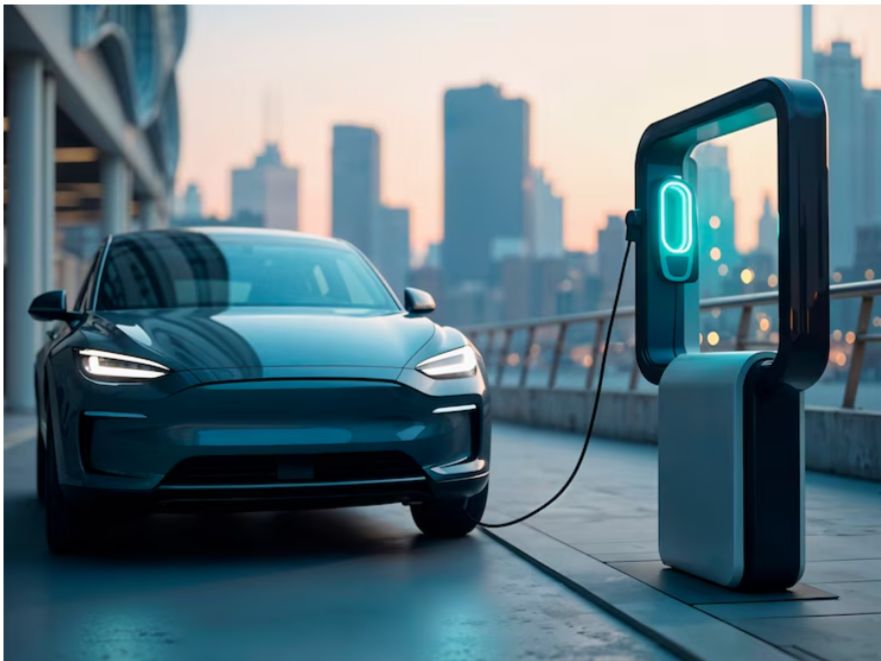
Electric vehicles (EVs) are no longer a futuristic concept. In 2025, they are increasingly becoming a part of India’s urban landscape. With government incentives, growing awareness, and rising fuel prices, many Indian consumers are now considering electric cars over traditional petrol or diesel options.
However, with the buzz around EVs comes the need for clarity. Are electric cars truly worth the hype in India?
Why Electric Cars Are Gaining Popularity in India
The shift towards electric mobility in India is driven by both environmental and economic factors. Let us explore their advantages, limitations, and the importance of securing the right car insurance for responsible ownership.
Environmental Benefits
⦁ Zero Tailpipe Emissions: Electric cars do not emit harmful gases, reducing air pollution.
⦁ Lower Carbon Footprint: When powered by renewable energy, EVs help cut greenhouse gas emissions significantly.
⦁ Noise Reduction: EVs operate silently, helping reduce noise pollution in busy cities.
Government Incentives
⦁ Subsidies under the FAME II (Faster Adoption and Manufacturing of Hybrid and Electric Vehicles) scheme
⦁ Reduced GST on EVs (5% as compared to 28% on petrol/diesel vehicles)
⦁ State-level benefits such as registration fee waivers and road tax exemptions
Lower Running Costs
⦁ Electricity is more affordable than petrol or diesel
⦁ Fewer moving parts in EVs mean lower maintenance costs
⦁ Regenerative braking helps conserve energy and extends battery life
Challenges That Still Exist in 2025
Despite advancements, EVs in India continue to face a few roadblocks that potential buyers should consider.
Limited Charging Infrastructure
⦁ Although charging stations are increasing, availability in smaller towns and highways is still limited
⦁ Home charging setups require space and proper electrical provisions
Higher Initial Cost
⦁ EVs generally cost more upfront than their internal combustion engine (ICE) counterparts
⦁ Battery costs, while reducing, still account for a significant portion of the vehicle price
Range Anxiety
⦁ Most budget EVs in India offer a range of 200 to 300 km on a full charge
⦁ Long-distance travel requires careful route planning with charging stops
Battery Life and Replacement
⦁ EV batteries degrade over time and can be expensive to replace
⦁ While manufacturers offer warranties, replacement costs remain a concern
Is the Indian EV Market Ready in 2025?
The Indian electric car market is gradually maturing. Top carmakers are investing in EV production and launching affordable models for the mass market. Public-private partnerships are pushing for more charging stations across metro cities and highways.
Used EVs are also entering the market, making electric cars accessible to a wider audience. Leasing options and subscription-based ownership models are becoming popular, especially among young professionals.
Understanding Electric Car Insurance in India
Owning an electric vehicle comes with unique responsibilities. One of the most important is securing the right ev car insurance.
Motor Insurance Basics
As per Indian law, third-party motor insurance is mandatory for all vehicles, including electric cars. This covers liabilities arising from damage or injury caused to a third party.
However, comprehensive insurance is strongly recommended. It covers:
⦁ Damage to your own vehicle
⦁ Theft or vandalism
⦁ Fire and natural disasters
⦁ Battery-related damages
Add-ons for Electric Car Insurance
In general insurance, additional benefits are referred to as add-ons. These are optional covers that enhance the protection offered by your base policy.
Some useful add-ons for electric cars include:
⦁ Battery Protect Cover: Covers damage or degradation of the battery beyond the warranty terms
⦁ Zero Depreciation Cover: Ensures full claim settlement without considering depreciation
⦁ Charging Equipment Cover: Protects against damage or theft of home charging units
⦁ Roadside Assistance: 24x7 support for battery discharge, breakdowns, or towing
Digit Insurance goes beyond basic protection with smart add-on covers tailored for real-life needs. The EV shield add-on cover is ideal for electric and hybrid vehicle owners. It offers compensation for damage or loss to the vehicle’s electrical panel, charging point, charger, and cable, along with roadside assistance for EV battery issues.
The Zero Depreciation Cover ensures you receive the full value of repairs and replacements during a claim without factoring in depreciation. These optional add-ons make your car insurance more robust and suited to today’s driving environment.
Electric cars in India are no longer a niche trend. In 2025, they offer a viable and responsible mobility option for urban drivers and early adopters. While some challenges remain, advancements in technology, supportive government policies, and increased awareness are pushing EVs into the mainstream.
|